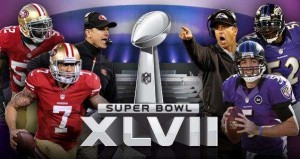I grew up, unbelievably, in an age that was largely BP: Before Plastic. By the time my age was being expressed in double figures, things plastic were becoming much more common. In the early 70s, somewhere, the poet Shel Silverstein was already complaining about the plasticization of life, including the artificially enhanced curves of women, as I recall. (It’s all plastic!)
Plastic. Plastic. Plastic. (Write it often enough, and it starts to look as odd as its ubiquity actually is.) I’m sure there are lots of plastic things I have appreciated, but I’m having trouble thinking of them at the moment. Okay. Frisbees. Vinyl record albums. Yes, and those milk crates that were so good for storing albums, or anything else. But plastic is making me crazy. I’m suddenly plagued by noticing it just about everywhere: in the absurd amounts of packaging on nearly everything we buy, and in the piles of food and drink containers thrown by nearly every roadside. Plastic has been a useful invention, I guess, and it had better be. The stuff hasn’t been around long, but it lasts pretty much forever.
Imagine its invention. Imagine the wonder and excitement of materials scientists who, in ways that mystify me, found they could manipulate the chemistry of petroleum and create tough, sometimes flexible, easily shape-able materials. “Look, we can make anything!” they must have shouted. They took oil and made Plexiglas. (Hockey was happy, and basketball fans didn’t have sightlines blocked by the backboard anymore.) They made Baggies. They made Tupperware. They made car bodies and clothing and, let’s not forget, medicines, too. And they made plastic grocery bags by the BILLIONS, and who ever thought of where we were going to put all these nearly indestructible do-dads? Love is bliss, say I – it’s ignorance that’s blind. “Without vision, the people perish,” says the Old Testament scripture. Aboriginal wisdom, long ignored or suppressed, wags a knowing finger at our cultural obliviousness by reminding us to consider the effects of decisions for seven generations to come. Seven generations. We can’t wait seven months for “New and Improved!!”
And so now I think about plastic every time I go grocery shopping, anything shopping, and I try hard not to buy unnecessarily overpackaged stuff. Why do we need so much plastic crap around simple products? Answer: we don’t. Often it’s mainly for marketing and advertising purposes. Plastic containers give good surfaces to stick logos and contests and shiny colours and cute characters to. And plastic grocery bags, well, how did we ever get along before they were invented? In Ontario, I’ve read, we use about seven million of ‘em every day of the year. Where do they go? Ever wonder? (Leaving aside the ones that festoon the trees on windy days in fall and winter.)
Grocery bags are a big deal, suddenly. Ireland makes customers pay for them, has for years. San Francisco banned them completely last spring, and tiny Leaf Rapids, Manitoba is now the first Canadian municipality to say NO MORE. At my house, we console ourselves a little by re-using them in our kitchen garbage catcher, but we’re trying to avoid them when shopping. Cloth bags sit in our car trunk, and I sometimes remember to take them into the grocery store. (I always forget when I walk over, though. Mindfulness!)
I just came across another good reason to avoid plastic bags, besides the overflowing landfills and the little white ghosties blowing around every street and field. It was a bag from one of those big stores in every mall in every city: Athlete’s World. We’ll leave aside my curmudgeonly complaint about an allegedly “athletic” enterprise that caters mainly to style-addicted teens. Or maybe I won’t, because of this message that I read on an AW merchandise bag:
Warning: Wearing contents in bag may cause increased confidence and style leading to baggin’ on your friends for lookin’ all fugly.
Yes, that’s what it actually says. Translation: “Yo, young minds! Check it out! Buying your clothes at The Right Place will suddenly make you A Good And Worthy Person. ‘Cause that’s what happens, y’know. Human value comes from what you buy and where you buy it. So BUY it!”
And this ol’ English teacher won’t even comment on the contraction of a putdown and a vulgarity that results in “fugly”. Let’s just say this: if thoughts about the lasting curse of plastic garbage don’t make us clean up our act a little, maybe the toxic messaging on some of those bags might. (Though I doubt it. That was a snappy conclusion, in a plastic sort of way, but it’s a vain thought. But wouldn’t it be useful to think about where that bag is seven month, seven decades, from now. It’s a fugly thought, and now it’s all yours.)

